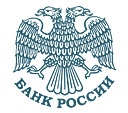
Bank of Russia
The Russian Central Bank has agreed upon a draft resolution with its Chinese counterpart on a proposed currency swap agreement, allowing the two countries to increase trade in their domestic currencies and reducing the need to rely on the US dollar for bilateral Payments , according to reports coming out of Russia over the weekend. A spokesperson for Russian regulators reportedly said: “The draft document between the Central Bank of Russia and the People’s Bank of China on national currency Swaps has been agreed by the parties. The agreement will stimulate further development of direct trade in yuan and rubles on the domestic foreign exchange markets of Russia and China.”
The Russian Central Bank did not offer any precise details on the size of the planned currency swaps, when the official agreement will be signed nor when it will be implemented. It stated that these details will be dependent on demand. As the swap agreement is still only a draft, some might wonder why the Russians were so pressed to make it public, but the coverage of the draft on Russian media makes it clearer to understand. While the official mouthpieces of the Chinese government report on similar economic developments, such as expanding yuan clearing in Europe, as being small steps to better harmonize international trade, it is left to Chinese academics and think tanks to to set in motion a plan to weaken the position of the U.S dollar as the global reserve currency. On the contrary, in Russia, the official English language state propaganda arm, Russia Today (RT), openly champions the idea of the process to "de-dollarize" the global economy.
The dominance of the American dollar in international trade and finance has come under pressure from other world powers, including from Western countries such as France, who claim it grants undue power to the U.S government to control the world economy and to punish nations and institutes that do not yield. Many think that the international system should be based more on a basket of major currencies including the yen, euro, yuan and others, or that international finance should go back to a gold backed monetary system. The recent U.S originated financial crisis and the continued money printing or "quantitative easing" by the Federal Reserve have only served to strengthened these voices.
Russia has taken an anti-USD stance for quite some time, but recent events have made the Russian position much more resolute. Following a military flare up in the Ukraine that led to a geopolitical crisis with the West, Russia found itself facing economic sanctions aimed at weakening it, and forcing it to make changes in its behaviour. The Russian response was to try and separate itself from the West by developing a parallel system to the international payments system and creating a competitor to the world bank based on the BRICS economies. Russia has also called on firms, especially natural gas and oil companies, to trade more with Asia and particularly China to counterbalance the Western sanctions. While Russia probably plans to create a "multipolar" world with itself as an equal to the European Union or the United States, increased dependence on the yuan, coupled with Western sanctions might lead it to become just an energy-exporting Chinese-dominated country down the road, on par with Africa.


















